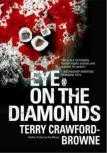Eye on the Diamonds - South Africa's arms trade bribery
Terry Crawford-Browne
The Barclays Bank, HSBC and StanChart banking scandals well illustrate why the City of London is sometimes described as “the most corrupt square mile anywhere on the planet Earth!”
The British and the war business do corruption with panache. How apt that the villain in the Barclays saga is a man called “Diamond” -- for diamonds are symbolic of colonial conquest both in India and South Africa, as well as war and the passions of love.
In addition, it is through a front company in the British Virgin Islands styled Red Diamond Trading Company that BAE laundered bribes to secure its warplane contracts with post-apartheid South Africa.
Back in 1998 when, through Campaign Against Arms Trade, I asked the British government to investigate whether BAE was bribing South African politicians, I learned that it was then not illegal in English law to bribe foreigners.
Foreigners, especially Africans, were considered “fair game” in the British priority of peddling weapons made in the “first world” to kill people in the “third world.” There are always plenty of “black diamonds” ready to sell their souls! Besides if not the English, well then the French or the Russians or the Americans will happily oblige.
Arms traders, and BAE in particular, are organised crime on a scale that makes the Italian mafia look like saints. In Britain, BAE’s criminality reaches right to the top: Margaret Thatcher, John Major, Tony Blair and now David Cameron have all been hugely complicit.
When Queen Elizabeth visited Cape Town in March 1995, the royal yacht Britannia doubled as a floating British armaments exhibition. Prince Andrew is one of BAE’s favourite salesmen!
The SA Air Force rejected the BAE Hawk and BAE/Saab Gripen fighter aircraft proposals as early as July 1997. The aircraft were considered both unsuited to African conditions, and too expensive.
Blair stepped up the pressure with promises of a 40 percent increase in British financial aid, and an absurd proposition that “arms deal” offsets would stimulate the South African economy and create jobs.
British government officials were seconded to ensure success of the offset programme. In reality, their purpose was to prevent the Auditor General and parliamentarians from investigating on spurious excuses that the offset contracts were “commercially confidential.”
As a former international banker, I could smell the corruption. The evidence soon followed. I had been appointed to represent the Anglican Church during the 1996 to 1998 parliamentary Defence Review.
Whistleblowers from the African National Congress approached me in June 1999, since when the arms deal scandal has almost weekly featured on the front pages of South African newspapers.
They told me that the arms deal was just the tip of the iceberg to turn the country into an international centre for organised crime. It had “first world” banking facilities combined with a dysfunctional police service.
The arms deal affordability study warned cabinet ministers that the arms deal could lead the government into mounting fiscal, economic and financial difficulties, and that the negative consequences would include a massive increase in unemployment. The warnings were ignored.
When informed that serious evidence of BAE corruption had been forwarded to a judge for evaluation, BAE and the British government stepped up the pressure. The judge was dismissed, and Minister Peter Hain insisted both in writing and to me verbally that there was absolutely no basis for the allegations.
A British peace activist in June 2002 sent me 255 pages of the Barclays/Export Credit Guarantee Department (ECGD) loan agreements that fund the BAE warplane contracts. The documents have been verified in court as authentic, and the government’s legal counsel conceded that the default clauses are “potentially catastrophic for South Africa.”
In my view as a former banker, they are a textbook example of “third world debt entrapment” by British banks and governments. South Africa has borrowed for 20 years until 2019 to purchase BAE warplanes for which we have no pilots to fly them, no mechanics to maintain them, and even no money to fuel them.
The former Secretary for Trade and Industry, Patricia Hewitt reluctantly admitted in 2003 that BAE had paid “commissions” (for which read bribes) to secure its contracts with South Africa but, she pleaded, they were “within reasonable limits.” The mind boggles!
Predictably, the offsets were a scam and simply instruments to pay bribes. In due course, I received 160 pages of affidavits detailing why and how BAE laundered £115 million in bribes to secure those contracts, to whom the bribes were paid, and into which bank accounts they were credited.
I have submitted these and other documents to the South African Constitutional Court. President Jacob Zuma in October 2011 reluctantly appointed the Seriti Judicial Commission to investigate the scandal, including what remedial actions should be taken.
The arms deal quite clearly was fraudulent. Lord Denning famously pronounced that “fraud unravels everything.” The remedy for fraud is to cancel the contracts, return the (slightly used) BAE warplanes, and to recover the monies (plus penalties).
The loans are underwritten by the ECGD, and thus the British taxpayers. The financial consequences of cancellation will thereby fall to British rather than South African taxpayers.
British civil society, hopefully, will start asking questions why British governments are so deeply compromised in peddling armaments to countries such as South Africa, thereby undermining our hard-won constitutional democracy.
Crawford-Browne is a former banker who advised Archbishop Tutu and the SA Council of Churches in the international banking sanctions campaign against apartheid. His second book, Eye On The Diamonds, has been published by Penguin Books South Africa in May 2012, and will shortly be available as an e book.

Add new comment